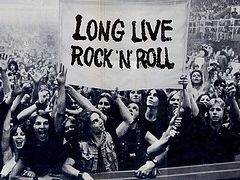Do you remember how in Dead Souls1, the immortal story by Nikolai Gogol2 a man called Pavel Chichikov buys Dead Souls3? Gogol is a great mystifier, and in this buying and selling [of souls] a deep religious meaning is sewn. Many literary scholars reveal the image of Pavel Ivanovich Chichikov as an agent of the devil, who collects profit for his master.
It turns out that it is not the deceased serfs [whose souls, i.e. tax records/status, are being sold.—Trans.], who are dead souls, but these are in fact the bearers of various passions: Sobakevich [who sells dead souls], Korobochka, and others like them.
A traveling salesmen of the Evil One, who buys the souls that were lost to God, is in fact, a biblical idea. In the 18th Chapter of the Book of Revelations, certain Merchants of the Earth (Revelations 18:3) are mentioned, and there is a list of goods which include [the] bodies and souls of men. (Revelations 18:13).
The merchants conducted their trade in Babylon. Apocalyptic Babylon is a city of whores, a biblical symbol of an anti-Christian civilization. God destroys Babylon, and the merchants mourn the fall of their business, which included the buying and selling of the bodies and souls of humans.
And to whom could the text of Revelation be attituded today? Who is suitable for the role of “merchants of the earth”? For example, are the experts in PR-technology4 suitable? Especially those who in their work do not consider moral and religious principles? It seems that the massive manipulation of consciousness is the purchase and sale of human souls in our days.
I purpose to test this thought, by looking at the portrait of one of these types of modern merchants. This person can rightly be called a great acquirer of souls, just as bad as Chichikov.
Today, he is called the “Father of Public Relations”. Born a Jew, by place of residence he was an American, by family connections a nephew of Sigmund Freud, and the great-great grandson of the chief rabbi of Hamburg, Isaac Bernays; this man lived a long life, 104 years from 1891 to 1995. He was a pioneer in the use of psychology and other social sciences in PR technologies. His name is Edward Bernays.
You could speak a lot about the projects of Bernays, who showed in his work a very devil-like whit and resourcefulness. For example, with Bernays help, smoking became a common standard for women. Freud’s nephew convinced the world that a woman with a cigarette is cool, stylish, and beautiful. For the first time in the history of advertising, the effect of “star” authority was used.
The PR man brilliantly promoted the image of a smoking lady through individuals on the level of Marlene Dietrich. At the request of Bernays, numerous doctors were vying about the benefits of nicotine, famous opera singers about the beneficial effect of smoking on the voice. With the help of a paid team, Bernays overcame one of the biggest social taboos: a woman smoking in a public place.
Prior to Bernays, ladies were allowed to smoke only in special places, or were not aloud all with the possibility of arrest. The PR genius managed to break this psychological barrier by pressing only two buttons: the authority of the star, and the very popular movement of women’s emancipation at the time. Models with cigarettes where called “Torches of Freedom”, women’s smoking became socially acceptable. The company Lucky Strike sent Bernays a massive sum of money.
It is interesting that Bernays worked on the masses through the news, rather than through advertising. He was pretty sure that the news is the best way to convey an advertisement. A person reading or watching the news does not suspect that at this very moment, he is under a psychological attack, therefore in this moment he is particularly vulnerable.
As it is, very few people think today about what criteria we use to select the news [that we consume]. There are thousands of news agencies in the world, yet we only recognize a few, and they are the ones that are purposed to hold our attention. It is clear that their news is served with a special sauce. The wording and headlines are decisive for perception. The frequency of the appearance of news today is similar to a powerful artillery barrage.
Also, for example, Bernays contributed to the fact that America began to eat more and become fat. Having been hired to raise the level of meat sales by bacon manufacturers, Edward conducted a small social study to find out what Americans eat for breakfast. It turned out it was coffee, bread rolls, and orange juice. The PR man heard from his doctor that during the night, the body loses a lot of energy, so a hearty breakfast may be preferable to a light one. Bernays asked the doctor for permission to send in his name a letter to five thousand doctors asking if they agreed with this statement.
Approximately 4,500 doctors answered yes, and so the enterprising PR man published articles with headlines in all the American newspapers saying “4500 doctors advise eating meat for breakfast”. A choice of dishes was suggested: fried eggs and bacon. After the publication, the sales of bacon soared.
In general, the use of authority is Bernays’ favorite method of influencing the public consciousness: “If you can influence the leaders, either with or without their conscious cooperation, you automatically influence the group they sway,” he said.
Even in his youth, the PR man was asked to promote a new play about prostitutes. Let me remind you that this was not present day America, but the puritan America of the early twentieth century. Bernays got to work—he created a fund to combat STDs5, and after the charity fund declared the play instructive and highly moral, the people flocked to it.
There are noteworthy contributions of Bernays in the development of political PR [and/or outright propaganda.—Trans.] Working during WW1 in the Woodrow Wilson administration, he assured millions of people that the US military is establishing “democracy throughout Europe”.
What kind of merchant is this? A real Chichikov, is he not?
Bernays was a genius and unique, but he is still not the only one. A huge army of PR technologists are working on public consciousness today. Advertising and news have for a long time ceased to be simply advertising and news, but have gone into a social channel. In fact, they artfully form the circle of interests and the image of one’s thoughts, as well as the image of clothing, nutrition, communication, and etiquette.
“Don’t you want to drink something that really quenches your thirst, like all kinds of Pepsis and Sprites? We’ll make you! And you’ll even say thank you! Do you want to wear some strange rags that certain people call clothes? You’ll wear it my dears, and even stand in line to buy them for crazy money. You don’t want to switch your smartphone for a new model? It’s nothing, you’ll change it, and be happy with the new thing. We will make you do everything that we need!”
PR technologists get into the very soul of a person today and change it from within. There are a few “Overton windows”6 for which advertising and news work, concerning matters more serious than women’s smoking. On the agenda are gender issues, the rights of sexual minorities, the disintegration of traditional societies, and so forth. Political technologies are a whole separate discussion.
No one can hide from PR attacks today. The overwhelming majority of the population of European countries have a conscious life on the internet. Everything about our accounts is known: the history of our movements, the list of searches [search history], the frequency of visits to certain sites. Google Ads offers everything you even casually take an interest in recently in any of your social networks. The specialists have more and more opportunities and resources to promote ideas.
Social networks and the internet in general can be seen as a formalized alternative reality. It’s amazing how Bernays’s individual ideas have now been automated. The style works on the principle of “how to sell”.
There exists a direct resale of souls through deception. There is a whole system of trade, carried out with the help of PR, an activity aimed at forming public opinion about something. This is a real, classic trade of souls. It’s not just advertising, it is advertising ideology, imposing values. Most advertising now is not just advertising a product, but advertising sin, advertising the ideology of sin.7 This is a conscious, classical sale of a certain way of thinking. All without exception, deadly sins are advertised now on our television, and propagated by billboards on the street.” wrote Father Daniel Sysoev8
Yes—we should not fail to mention that it is possible and necessary to preach the Gospel on the internet. But on the other hand, you look at all this and understand that the snares are laid.
Why do we talk about such topics? Because today’s War for Souls is conducted in the [battle] field of information9. The trappers of souls rely on human passions, and, as old as the world itself, man’s craving for what is prohibited [forbidden fruit.—Trans]. What does a person live by, whom does he trust, what does he love, and what does he long for? The answers to these questions determine who owns his soul, and who he is.
The above passage from Revelation shows that before the end of the world, the level of the spiritual captivity of people will reach such a point, that there will no longer be any reason to continue the history of the world. Mankind will be divided into two categories: the merchants of the earth, and the consumers of their goods. All the rest will become the merchandise of the merchants of the earth10.
Today we have examined the handiwork of these traders. We should take care not to be added onto the list of dead souls…










